Not Finding What You're Looking For?

Shirley Ryan AbilityLab Physical Therapist Shares Insights in The New York Times about Pain & Exercise
Shirley Ryan AbilityLab’s Conor O’Donovan, DPT — a physical therapist in the rehabilitation hospital’s Pain Management Center — shared his expertise about pain and exercise in a recent article by The New York Times, Your Workout Should Hurt. But When is Pain a Red Flag?
News

Shirley Ryan AbilityLab Physician Shares Pelvic Health Insights in Woman’s World
As a physiatrist and director of women’s health rehabilitation at Shirley Ryan AbilityLab, Sarah Hwang, MD, is an expert in the health of the pelvic floor — an important group of muscles responsible for stabilizing the pelvis and lower back; supporting internal pelvic organs; maintaining bowel and bladder continence; aiding in circulation between the legs and the heart; and facilitating sexual function.
News
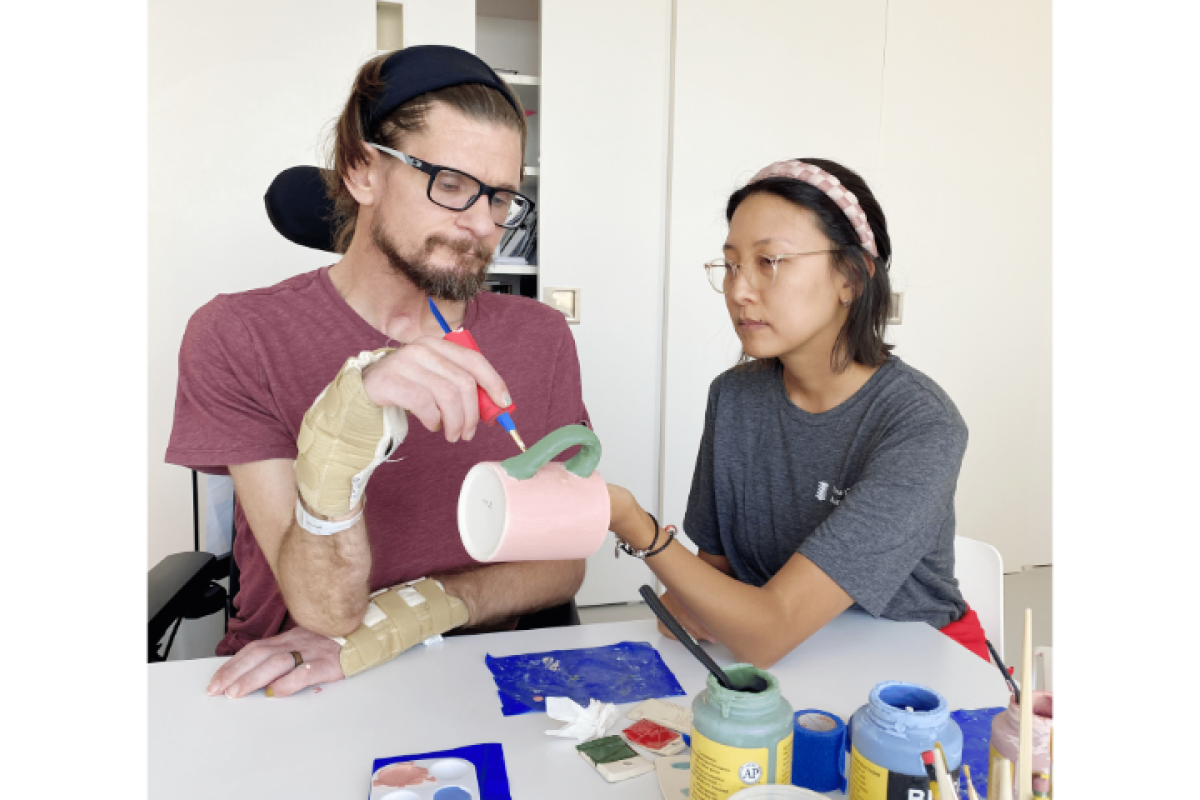
John’s Story: Finding Healing & Self-Acceptance in Art Therapy
John D. was diagnosed with Guillain-Barré syndrome (GBS), a rare disorder in which the body’s immune system attacks the nerves, often without warning. The resulting nerve damage can cause muscle weakness and, in John’s case, paralysis.
Patient Story
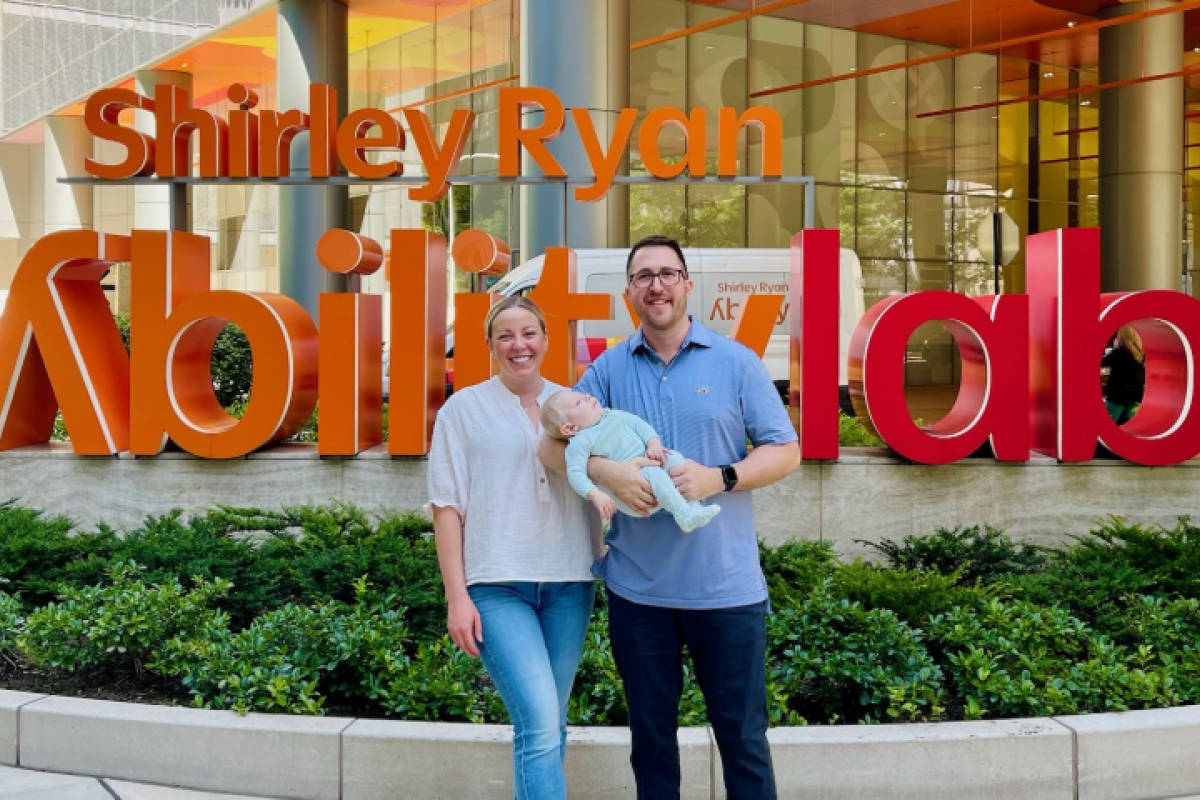
Meet Baby Harvey: A Year in the Life with Cerebral Palsy
Harvey S. was only four months old when he traveled with his parents, Michele and Jake, from Virginia to Shirley Ryan AbilityLab in Chicago. He was diagnosed with cerebral palsy (CP) and soon began inpatient “habilitative therapy” — a type of therapy geared toward developing new skills, often used in children with chronic conditions.
Patient Story
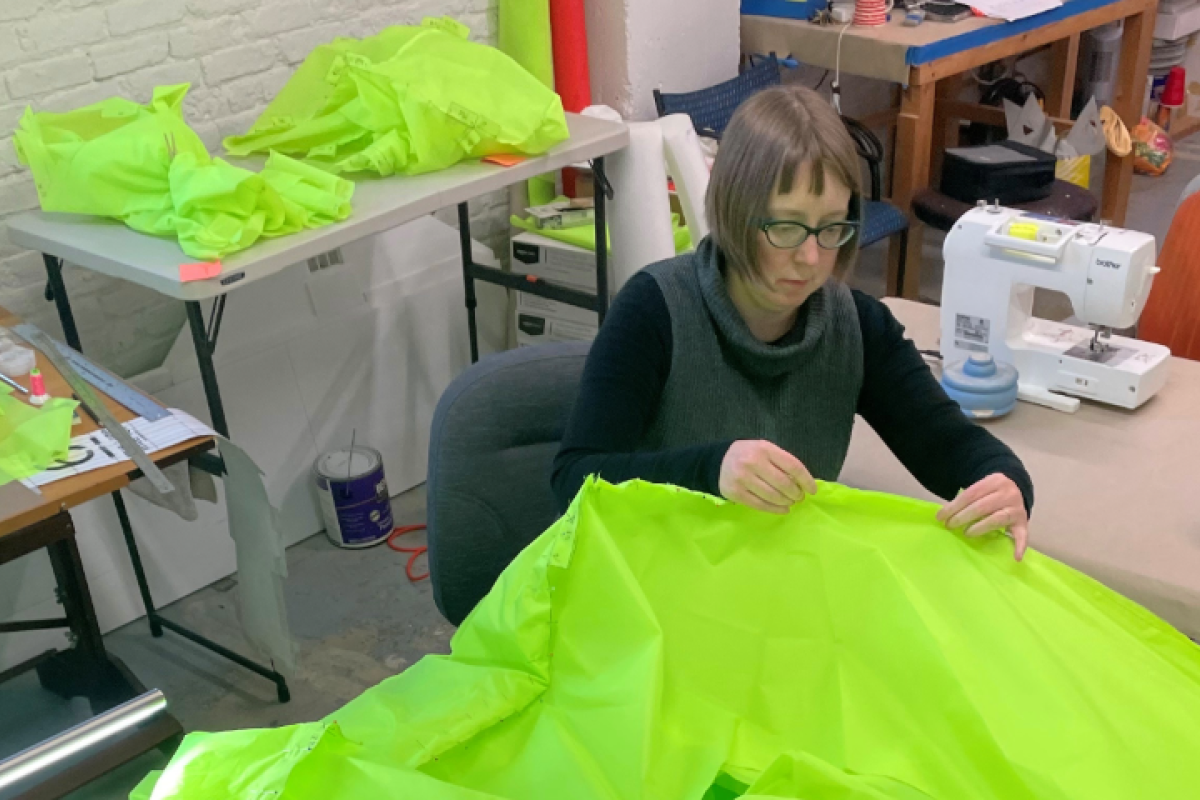
Shirley Ryan AbilityLab Speech-Language Pathologist, Patient Featured in WBEZ Chicago Story about Long COVID
A recent story on WBEZ-FM, Chicago’s NPR affiliate, highlighted Shirley Ryan AbilityLab’s outpatient COVID Rehabilitation Unit, which opened in 2021 to provide care for patients experiencing long COVID symptoms.
News
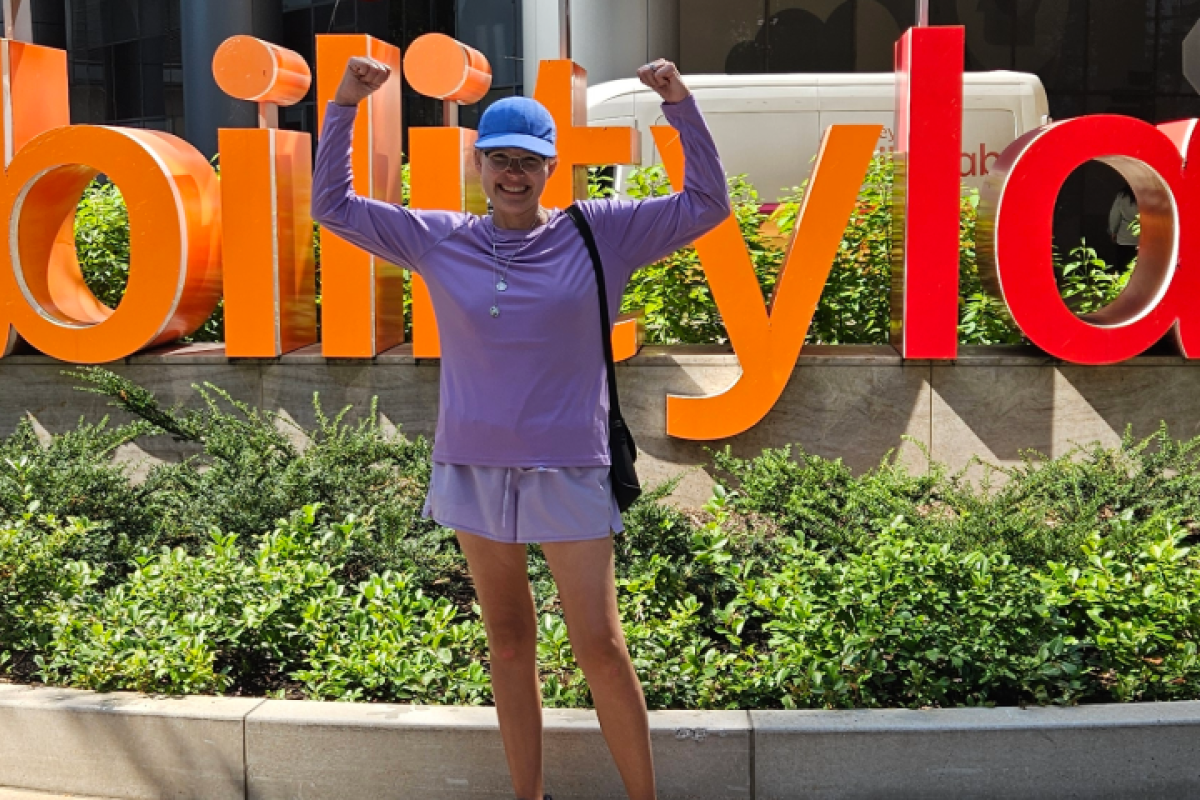
Sarah Reaches New Heights after Guillain-Barré Syndrome
Meet Sarah, who came to us for extensive therapy after being diagnosed with GBS. Today, her function and independence are restored.
Patient Story
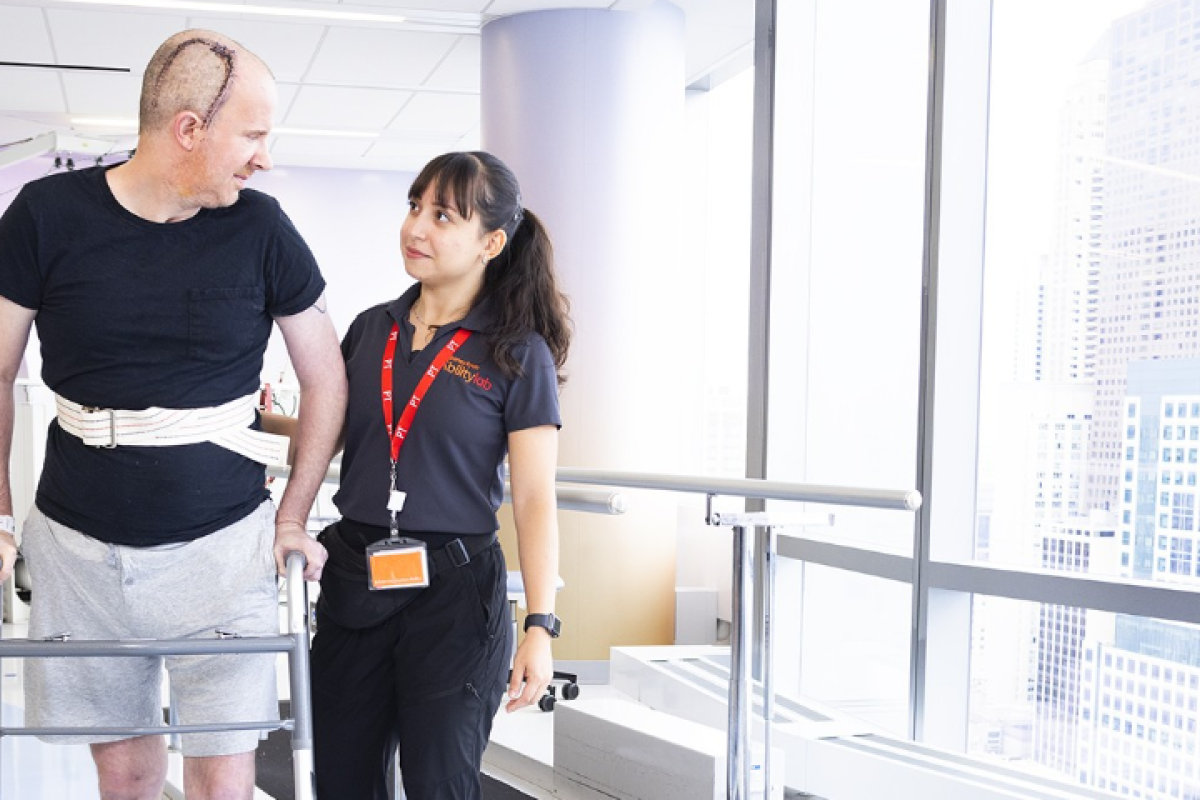
Inpatient Rehabilitation Facility vs. Skilled Nursing Facility: Choosing the Level of Care That’s Right for You
Patients and families have an important choice to make when deciding where to receive rehabilitation care. Two common options include inpatient rehabilitation facilities (IRFs), like Shirley Ryan AbilityLab, and skilled nursing facilities (SNFs). The differences between them are significant — and can affect the extent and speed of recovery.
News

Schroth Method for Scoliosis: A Path to Better Spinal Health
One option for the treatment of scoliosis is the Schroth method, an exercise-based physical therapy approach. This method is available on an outpatient basis at Shirley Ryan AbilityLab for patients who have scoliosis, as well as kyphosis — another spinal condition marked by an excessive rounding of the upper back.
Blog
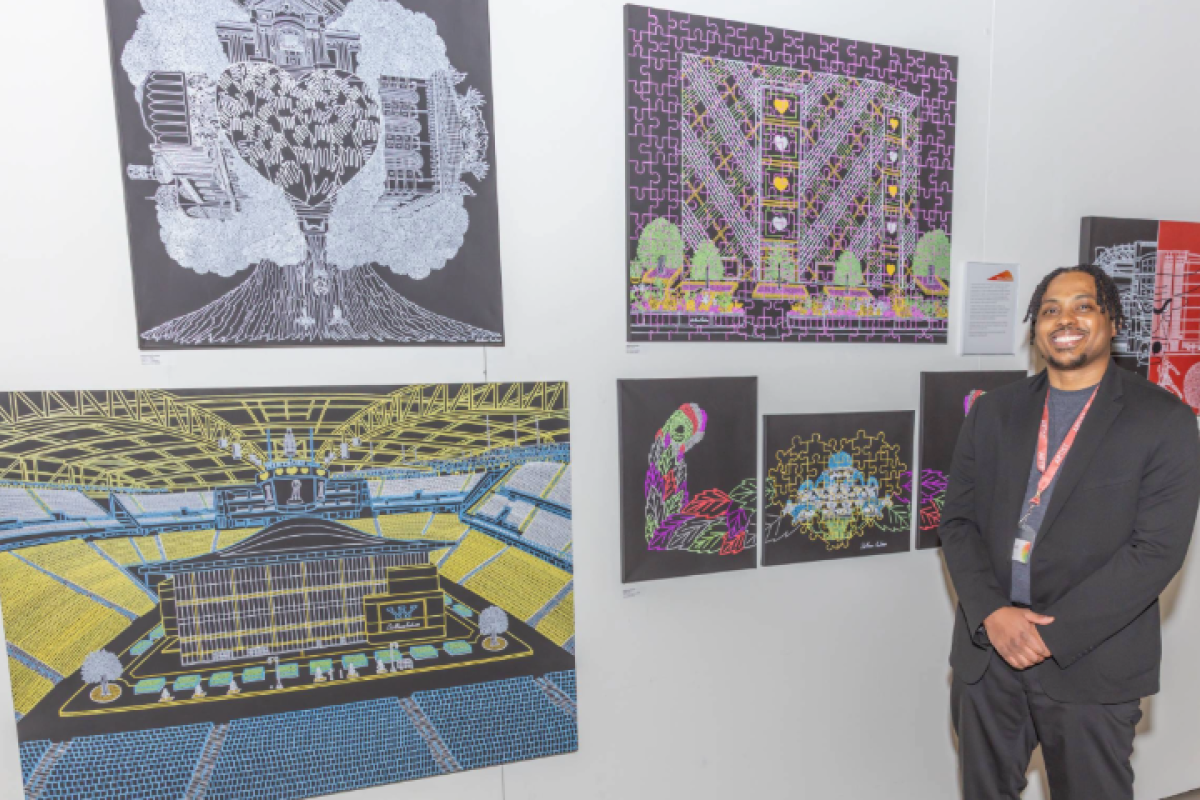
DeMarcus’ Story: Finding Healing after Limb Loss through Art Therapy
DeMarcus P. came to Shirley Ryan AbilityLab after his left foot was amputated following a work accident. Through intensive inpatient and outpatient rehabilitation, he regained strength and learned to walk using a prosthetic leg. DeMarcus also discovered healing in our art therapy program — utilizing his creativity to process the frustration and emotional stress of his injury and recovery.
Patient Story

Creating an Adjustable Prosthesis for Aquatic Therapy
In 2023, Shenan set out to find a solution for an adjustable prosthesis that would allow patients with limb loss to participate in aquatic therapy safely and easily.
Blog

Research Spotlight: Cognitive Rehabilitation Improves Quality of Life for Patients with Long COVID Brain Fog
A recent study highlights the positive effects of cognitive rehabilitation in patients experiencing lingering cognitive difficulties, or “brain fog,” after experiencing COVID-19.
Blog

Nickolas’ Story: Healing through Education After Guillain-Barré Syndrome
Nickolas G., a physician, came to Shirley Ryan AbilityLab for intensive rehabilitation after becoming paralyzed by Guillain-Barré syndrome (GBS) — a rare disorder in which the body’s immune system attacks the nerves.
Patient Story